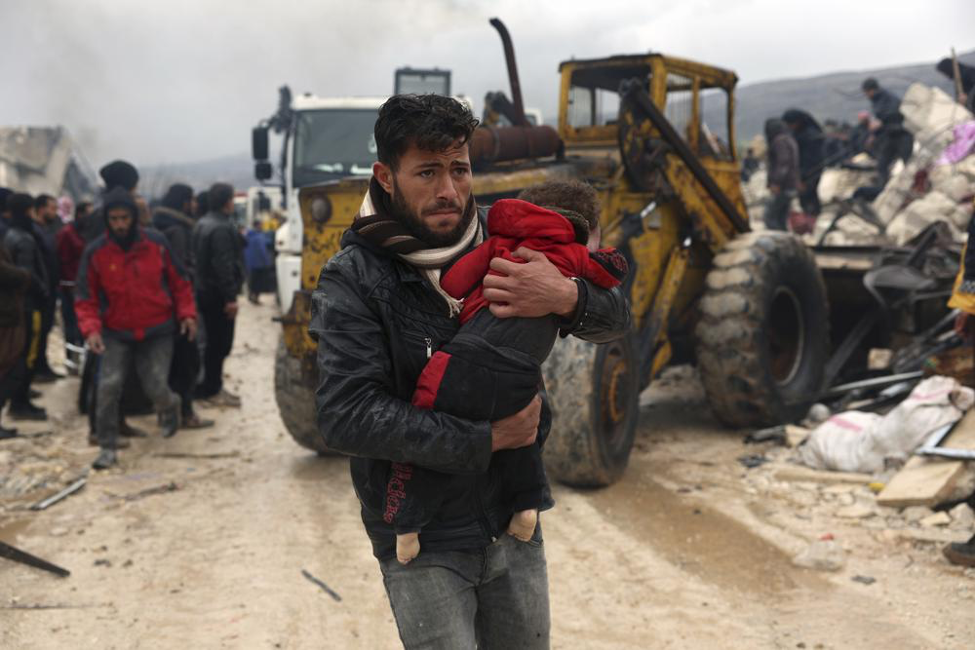
Political tension is not often an aftershock associated with natural disasters. Yet, in the aftermath of multiple earthquakes that wreaked havoc around the Syrian-Turkish border, many unanswered questions have emerged in the spotlight regarding Syria’s relationships with the Arab and Western worlds.
Normally, one’s first instinct toward earthquake victims would be to provide aid and sympathy. However, many in the West, including the Biden administration, found themselves in a dilemma. The West has historically had strained relations with the Arab state and current President Bashar al-Assad, whose presidency has been marred with stances that have understandably worried the Occident, most notably due to his support for the notorious terrorist group ISIS.
Al-Assad’s unflagging tolerance of the group has even withstood instances where his own regime has struggled to regain territory from the Islamic State rebels, choosing instead to target other rebel groups. The fact of the matter is that ISIS provides a substantial advantage for the regime, in terms of both economic growth and territorial/geopolitical sovereignty. The terrorist group’s ruthless endeavors tend to deter opponents from taking any ambitious steps against the oftentimes inhumane practices associated with not only ISIS but Syria in general.
The primary action that the US has therefore taken has revolved around economic sanctions against the nation, among the most notable being the Caesar Syria Civilian Protection Act. This act, placed by former President Donald Trump in late 2019, limited military and infrastructural spending in an effort to curb the effects of war crimes against the nation’s own citizens.
Unfortunately, these very sanctions are arguably hindering humanitarian aid in the midst of the earthquake. Were these to be lifted, it is possible, and likely, that al-Assad would capitalize on these resources to benefit the regime, once more prioritizing his sovereignty rather than the welfare of his citizens.
The fractionalization of the country does not help either; with the majority of aid being focused on the northwestern areas of Syria (the main affected regions), those in other parts of the country have been left out to dry. As this portion of Syria is opposition-controlled, the normally porous nature of humanitarian aid has been halted at the divide between the regime and rebels. Furthermore, sending aid to regime-controlled areas would involve negotiating with al-Assad, something that the West and many international organizations are naturally reluctant to do.
One must keep in mind that Syria is still in a civil war, albeit with reduced violence due to the aforementioned sanctions. While foreign intervention has definitely driven this gap farther apart, it begins and ends with internal matters. Nevertheless, it is evident that foreign assistance during the most conflict-ridden periods has further deterred efficient aid, particularly from the United States’ perspective. Nations such as Russia have contributed significantly to the al-Assad regime’s conquests, directly opposing the stances that the West has taken.
This context becomes crucial when considering a longer lift of sanctions (currently at a 180-day exemption policy), for they have been the only significant obstacle to yet another bloody initiative by the regime. It frankly seems absurd to risk this, even amid the earthquake. It seems reasonable to me to assume that more casualties will result from a restart of violent conflict than this earthquake.
That is not to say that the victims of this crisis do not matter, or that no aid should be provided. I simply believe that the sanctions should not have to be jeopardized for the sake of aid alone. I don’t think I make an audacious claim when I say humanitarian resources do not entail military infrastructure. There is no denying that the resources that NGOs like the United Nations provide definitely benefit the regime, but there is simply no other way to give suffering humans basic resources to increase their chances of survival.
Ultimately, this is a country in a civil war, now suffering from the consequences of a natural disaster. Yet which is costlier? 47,000 dead across two countries from an earthquake, or hundreds of thousands more dead from violence at risk of returning?
